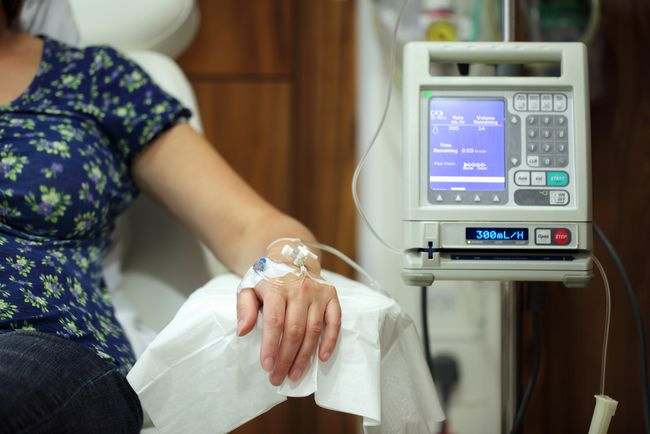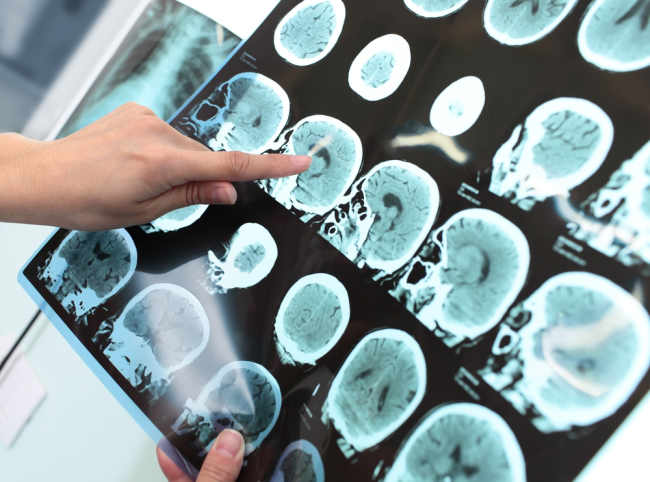Lack or dRed blood cell efficiency can cause anemia. This condition must be prevented and treated because it can inhibit the intake of oxygen throughout the body and the removal of carbon dioxide from the lungs. If not treated immediately, the performance of the body's organs can be disrupted.
When red blood cell deficiency occurs, the symptoms that are generally felt are weakness, fatigue, dizziness, and shortness of breath. However, sometimes this condition may not cause any symptoms.

Causes of Red Blood Cell Deficiency
In the body, red blood cells are produced regularly, precisely in the bone marrow. Red blood cells contain iron-rich protein or hemoglobin. This substance is what gives blood its red color.
When the body has a deficiency of healthy red blood cells or hemoglobin, this can lead to anemia. In general, red blood cell deficiency or anemia can be categorized into two types, namely:
Congenital anemia (inherited)
Insufficient production of red blood cells can be caused by genetic disorders or inherited factors from parents. People who have this type of red blood cell deficiency are born with a red blood cell deficiency. Congenital anemia usually occurs in people who have certain diseases, such as:
- Thalassemia
- Sickle cell anemia
- Hemolytic anemia
- G6PD . deficiency disease
- Congenital hypothyroidism
Acquired anemia (acquired)
Lack of red blood cell production can also occur at any time due to certain health problems. This condition is also known as 'acquired' anemia.acquired).
Acquired anemia can occur in women who bleed a lot during menstruation and people who have certain medical conditions or diseases, such as:
- Deficiency or deficiency of vitamins and minerals, such as folate, vitamin B12, and iron
- Kidney failure, autoimmune disease, diabetes, Crohn's disease, and cancer
- Infections, such as sepsis, tuberculosis and malaria
- Chronic bleeding
- Hormonal disorders, eg hypothyroidism
- Spleen function abnormalities
- Abnormalities in the bone marrow, for example due to leukemia or aplastic anemia
How to Overcome Red Blood Cell Deficiency
To prevent and overcome red blood cell deficiency, especially those caused by lack of nutritional intake, you can meet the following nutritional requirements:
Iron
Consumption of foods rich in iron can help increase the production of red blood cells and hemoglobin. In order for your daily iron needs to be met properly, you need to eat some foods that contain iron, such as:
- Meat
- Chicken or beef liver
- Fish, such as salmon, tuna, tuna, and sardines
- Seafood, for example mussels and oysters
- Green vegetables, such as spinach and kale
- Legumes, such as chickpeas, edamame, and peas
- Tofu and eggs
In addition to eating these foods, you can also meet your iron needs by taking iron supplements as recommended by your doctor. The use of iron supplements is generally more recommended for certain groups, such as pregnant women, people with iron deficiency anemia, or malnutrition.
Vitamin B12
To overcome red blood cell deficiency, you are also advised to take vitamin B12. Besides being needed in the formation of red blood cells, this vitamin is also needed for nerve and brain development.
There are various foods high in vitamin B12 that can be consumed, such as beef liver, fish, meat, shellfish, eggs, milk, cheese, and yogurt. In addition, you can also take vitamin B12 supplements as recommended by your doctor to meet the needs of vitamin B12.
Folate
Folate or vitamin B9 also has an important role in the formation of red blood cells. Therefore, you must meet the needs of folate or folic acid properly according to age.
Teenagers need 300-400 micrograms (mcg) of folate per day, while adults need around 400 mcg of folate per day. In pregnant and lactating women, the recommended amount of folate intake is around 600 mcg per day.
Intake of folate or folic acid can not only be obtained from supplements, but also from foods, such as seafood, broccoli, spinach, whole grains, beans, eggs, and whole grain breads and fortified cereals.
In addition to eating nutritious foods that are rich in various nutrients above, red blood cell deficiency can also be treated with blood transfusions.
This procedure is usually intended to treat severe anemia, especially for patients with thalassemia, sickle cell anemia, or leukemia. Not only that, blood transfusions are sometimes also needed when experiencing a lot of bleeding due to an accident or after surgery or childbirth.
Meanwhile, to treat red blood cell deficiency caused by impaired kidney function, dialysis therapy and administration of the hormone erythropoietin are needed.
Red blood cell deficiency caused by genetic or congenital disorders is generally difficult to prevent. However, red blood cell deficiency caused by nutritional deficiencies can be prevented and overcome by eating a nutritious and high-nutrient diet.
If you have symptoms of red blood cell deficiency, such as frequent dizziness, weakness, paleness, cold sweat, and difficulty concentrating, especially if you have an unhealthy diet or have suffered from certain diseases before, you should consult a doctor for proper examination and treatment. .









